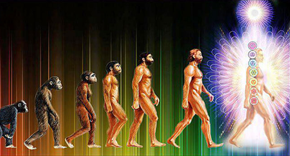by Milan Karmeli: Speaking my truth doesn’t change a thing, but it does create connection…

With a little painful smile at the age of 52, I can say that I’m a person who’s often impatient and dissatisfied. Characteristics have developed through the course of my life. Those close to me have witnessed the fallout of these traits over the years and I, myself, have experienced them. I’ve tried diligently to change these qualities in me and get to their root, but real improvement remains outstanding. Talking about honesty and being truthful about these traits hasn’t changed anything about their annoying effects, and yet, it has brought comfort to my soul.
The relief came by no longer having to pretend I’m focused, efficient, or content. Sharing truthfully about the darker sides of my personality has taken away some of the exhausting and painful efforts of trying to be perfect.
So really, speaking our truth has little to do with the Absolute Truth and everything to do with our human need to acknowledge and share with others things the way they affect us. Both in pain and in pleasure. It has been about learning how to voice my total experience, the experience of who I’ve been, who I am, and who I’m becoming, thereby allowing a flow, instead of stagnation.
Authenticity is About Letting Go of The Armour
Being truthful is a risky and yet, deeply empowering path to walk on. We are talking here about our capacity to hold two defining experiences that are in conflict by nature, reconciling our wishes with what is.
Our identity or personality, which makes us ‘special’ and demands constant reinforcement, is always telling us what it wishes for and drives our imagination. It’s who we believe we are, but not always necessarily who we really are. On the other side is the ‘conscious’ choice of experiencing life the way it actually happens. This demands simplicity, a quality rarely taught. A choice-less truthfulness, which has no other intention other than stating and accepting what is.
The magic of speaking honestly is that we gain integrity and dignity through our words. We don’t hide behind false intentions or manipulations. We express things the way they are.
Our needs don’t magically get fulfilled nor does our personality change by speaking our truth, but something else happens; suddenly there is the acknowledgment of our experience. Something that has been denied during childhood and other important junctions, and left open wounds. The pain of having to be someone else, pretending, or hiding out of shame leaves its scars.
Our Fixation on Saying The ‘Right Things’ Limits The Expression of our Truth
Speaking your truth can be confusing. We may think that we say things the way they are, but most of the time our focus shifts outwards to how we are perceived instead of remaining true to our experience.
“Will he be favourable or judgmental towards me?”
“Will she like what I say or do, or disagree?”
The fixation on being important and saying the right things limits the expression of our truth. It’s deeply healing to take the time as we find our own words, but instead, even the listener has a hard time being present without judgment or giving advice. Both sides, speaker, and listener, have learned that presence is less valuable than the narrative of our story itself.
Interestingly, the attention we receive from the listener actually backfires. Instead of owning our own experience, we are waiting for someone else to accept our own vulnerability and humanity. With the focus shifting outwards, no receptivity is possible.
What we rather want to learn is to face our fear of rejection. No doctrine can do that for us. What doctrine usually does, is create more sophisticated protections, without the possibility of love entering us.
Speaking Truth is a Love Affair That Needs Time to Unfold
We are both good and evil, both happy and unhappy, satisfied and unsatisfied, fulfilled and lonely, patient and intolerant, moral and immoral, and the list goes on. We want to reach a place of balance not because we create it, but through acknowledging its existence.
No doubt, it is hard to live with this confusing duality and the unpredictability it causes. How do we create stability in our relationships, if we have so much inner division? Usually, our response is to become one kind of person and repress the other person living inside us.
What supports us most in facing this inner division is to become intimate with the pain of lying, manipulating and cheating. Not the pain caused to others, but the pain we cause ourselves when betraying others. Usually, focusing on pain caused to others creates more guilt and shame and keeps us locked in a cycle of self-punishment. And even though it can be helpful in creating some urgency for change, it’s the pain of self-betrayal we want to get in touch with. The pain we sense when noticing the immense effort we exercise to stay above water, to be seen, touched, heard, to belong, and loved.
This pain, when it gets strong enough, ignites an understanding that only ‘I’ can take charge of my destiny. Only ‘I’ am the one who can stand up for myself or ask for help where needed. To face this inner split though, we, strangely enough, need a kind of playfulness. If we take our dark side too serious, then we end up making ourselves and our experience too important. Instead, if we allow ourselves to approach this lightly and with heart we can arrive at self-forgiveness, understanding, and find a new path for being.
So essentially, we are a work in progress. Maybe for one lifetime and according to many teachings, for many lifetimes. Our soul is on a journey of finding completion through integration.
Practices To Help Being Comfortable With The Language of Truth
Inquiry | In inquiry, we sit with another person. Instead of telling a story in which we repeat our known narrative from the past, we let a question sink in and allow words to arise. This is a deeply nourishing and healing practice in which we become vulnerable and are confronted with our inner judge that filters what we are allowed and forbidden to feel and express.
Using the word ‘AND’ instead of ‘BUT’ | Using the word BUT minimizes our experience. When we use the word AND our experiences suddenly have room to breathe. Notice the difference between the two sentences: “When I met Paul, I remembered our painful argument from 2 years ago, but I didn’t say anything to him.” or “When I met Paul, I remembered our painful argument from 2 years ago and I didn’t say anything to him.”
Slowing down when we speak | Slowing down allows us to choose and feel the words that arise. Suddenly an intimate connection between us and our words is created. They are no longer arguments, opinions or express roles we take, but simply reflect our experience.
Looking at the mirror and hearing our own voice | Seeing our own eyes, which are also windows to our heart and soul, as well as hearing our voice is a unique meeting between the personality and our being. We can sense the effort that goes into ‘making it’ in life.









































